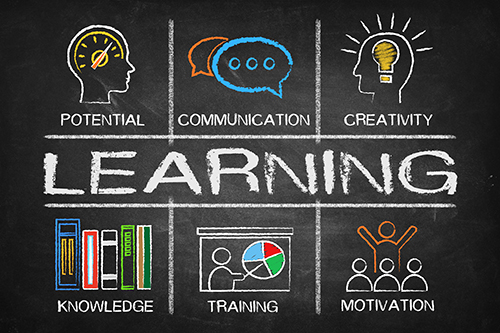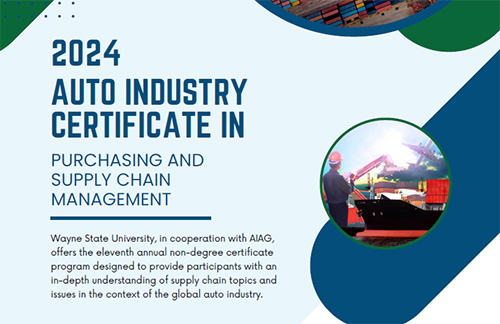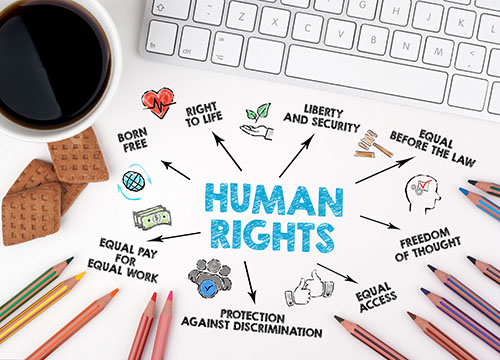Scheduled for October 3-4 at the Suburban Collection Showplace in Novi, Michigan, our 2024 Quality Summit will include author, workforce strategist, and award-winning keynote speaker, Gregory Offner!
Read MoreFrom the kickoff of our 23-week Auto Industry Certificate in Purchasing and Supply Chain Management program later this month, to in person and live virtual sessions this March and April on everything from the new APQP and Control Plan to USMCA Content Reporting, it's finally time to get spring training on your calendar!
Read MoreAs AIAG’s Global Customs and Trade and logistics program managers roll out the new year, AIAG members can take a sneak peek at what’s in store for ’24. Myriam Cronk, a seasoned AIAG leader, and Tonya Swix, a newer member of the team, weigh in on their unique perspectives.
Read More
2024 Supply Chain Courses are Here...Register Today!
Looking to improve materials management efficiency in your supply chain? Need to understand free trade agreement and USMCA concepts? Now's the time to schedule your next supply chain training at AIAG!
Read MoreOffered by Wayne State University (WSU) in cooperation with AIAG, our 2024 Auto Industry Certificate in Purchasing and Supply Chain Management program combines academic and industry instruction with hands-on exercises and discussion over a period of 23 weeks.
Read MoreAIAG Announces New Initiative to Identify and Address Forced Labor Compliance Risks in the Supply Chain
AIAG is taking a leadership role by collaborating with industry and subject matter experts to become a go-to resource for forced labor and human rights compliance in the mobility supply chain.
Read MoreWhat’s billed as the nation’s first wireless-charging public roadway for electric vehicles has been installed just west of downtown Detroit.
Read More"Governments must consider the risks of sending migrant workers to conflict zones,"
This month, officials from India’s largest state, Uttar Pradesh, and Haryana (which neighbours Delhi) are hosting a delegation of Israeli businesses seeking workers from the two states for jobs in Israel.
Read MoreAutomakers might have to shift supply chains as US Customs officials increasingly detain metal imports from companies suspected of using forced labor in the Xinjiang region of China.
Read More
WASHINGTON – The U.S. Department of Labor today announced the award of up to $12.4 million in grant funding for three organizations to reduce child and forced labor in Mexico and support migrant workers.
Read More











